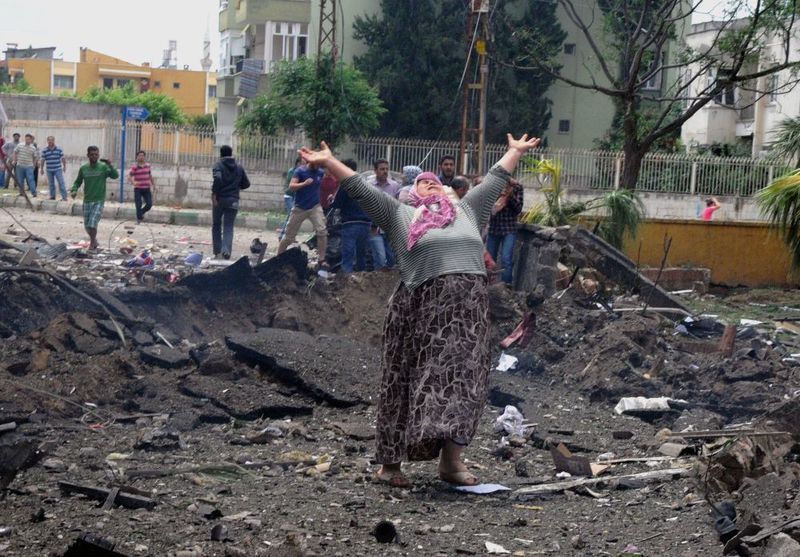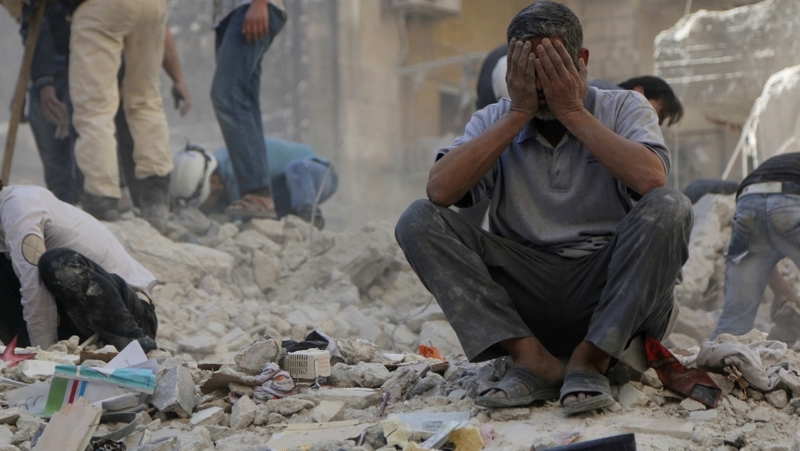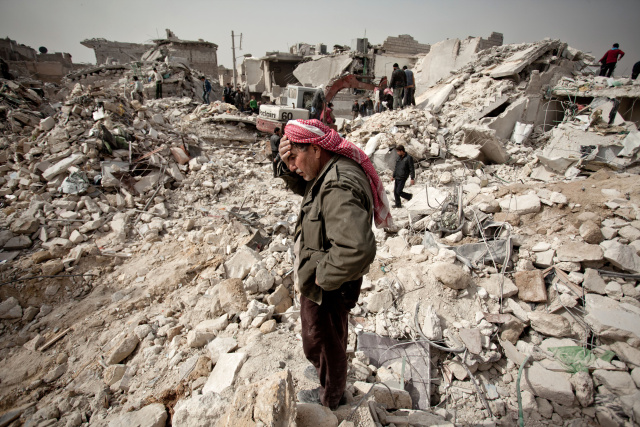Turkey Threatens Syria and Iran
Prime Minister Erdogan Slams Assad
Source: www.globalresearch.ca
By Mohammad Noureddine posted on Thursday, Aug 9, 2012
Turkish Prime Minister Recep Tayyip Erdogan has unleashed all kinds of condemnations of Syria and Iran. He questioned whether Syrian President Bashar al-Assad was really a Muslim, which will likely provoke Alawites inside Turkey and abroad. Erdogan also accused Iran of disloyalty, vowing to fight “the enemies of Turkey” until the end.
Following an iftar (Ramadan feast) held the day before yesterday [August 7], Erdogan sent very strong messages to Iran and “the enemies of Turkey.” He said that “the terrorist organization [The Kurdistan Workers’ Party (PKK)] is currently in the midst of a battle orchestrated by the enemies of Turkey. However, we will fight the battle against anti-Turkish circles with the highest severity and determination. We will not take a single step back.” Erdogan added that Turkey’s “enemies want to change our priorities.”
Erdogan criticized Assad, asking: “Can we even say that he is a Muslim?”
Erdogan denied interfering in Syria’s internal affairs. He launched an attack on Kemal Kilicdaroglu, leader of the opposition Republican People’s Party, describing him as part of an anti-Turkey campaign. He said that “just like there is the Baath Party in Syria, there is the Republican People’s Party in Turkey.”
Kilicdaroglu said in response that the current state of Turkey is depriving him of sleep.
“I am deeply saddened and concerned. I cannot sleep because of the situation in the country, while the prime minister is happy about it,” he said. “The prime minister is blind if he cannot see the dire situation facing the country. He is extremely detached from the current reality.”
In an article written in Hurriyet, Cengiz Candar slammed the ruling Justice and Development Party (AKP) for its Kurdish policy. He said that the countdown to the fall of Erdogan and the AKP has begun, and whether it will be a soft landing is yet to be seen.
Candar notes that “two conclusions can be made regarding what is happening. First and foremost, Turkish leadership in the region cannot be achieved through the government’s current policy toward the Kurds. Secondly, Turkey cannot hinder the emergence of a new reality in the region involving Kurds and Syrians, and its possible implications in Turkey.”
He continues, “We have always stressed that a change in Turkey’s Kurdish policy, as well as its Middle Eastern policy, would positively affect the internal situation. I will say it frankly for the first time: the hopes pinned on the desire and ability of the government to achieve such a change are running out. The new reality will not change the fact that Turkey is facing a dilemma. It is trying to operate in a swamp from which it cannot emerge to build a regional leadership.” Candar adds that “the Kurdish problem cannot be solved through the current policy. On the contrary, the opposite could happen, meaning that the AKP’s authority may gradually disintegrate.
In Turkish daily Milliyet, Metin Munir criticized Turkey’s sectarian policy toward Syria and the region.
“The government is seeking to gain points through its pro-Sunni and anti-Jewish policies. We have started to pay the price for that. Shortly after the start of the events in Syria, Assad became Turkey’s primary enemy,” he said. “Turkey, along with Qatar and Saudi Arabia, started to arm and fund Assad’s opponents. Turkey did all it could to bring Assad down. It tried to persuade Washington to support intervention in Syria, as it had in Libya. It also maintained that the departure of Assad would be in the interest of Turkey. However, Turkey was not able to achieve this goal. In fact, Assad’s departure is not in the interest of Turkey, but to the contrary. Syria, just like Turkey, is a country with diverse sects and ethnicities. Its population consists of Arabs, Kurds, Christians, Alawites and Sunnis. Under the authoritarian regime of Assad and his father, the unity of the country was preserved.”
Munir added: “Today, however, Syria is being divided, which poses an extreme threat to Turkey. Assad has begun to use the PKK against Turkey. He has handed the north of the country to the Kurds, and furnished them with heavy weaponry. Fighters have come from the Qandil Mountains [in Iraq] to Syria. Assad has transformed the area that extends from the Iranian border to the Mediterranean Sea into a battlefield against Turkey.”
Munir continues, saying: “Turkey must provide humanitarian aid to the Syrian people, but it should maintain neutrality regarding the Syrian conflict. Although this would be in the interests of Turkey, it has not happened. We have earned the enmity of Assad for no specific reason. He is now hitting us in a painful spot, that is, the Kurdish question. Why should we help Assad’s enemies inflict harm upon us? Do not cry out against the bloodshed of the Syrian people, as we should first work to prevent the bloodshed of our own. As the English proverb goes, charity begins at home.”
Commenting on the Prime Minister Erdogan’s statement, Ribal Al-Assad, Director of the ODFS, said:
“I call on Prime Minister Erdogan not to fan the flames of sectarianism in the Syria conflict as it will have disastrous consequences for Syria and the region. The language and actions of Turkey must not continue to help escalate the conflict in Syria and divide the region along its sectarian faultline. Turkey as a democratic neighbouring country has a role to play.
“However Turkey’s bias policy of creating and supporting the undemocratic Muslim Brotherhood dominated SNC and arming, training and facilitating access for the rebels, foreign fighters and jihadists has backfired and failed as Turkey like Syria is made up of many ethnicities, religions and cultures. Therefore Turkey should now start to act responsibly and as an honest broker.
“Turkey should stop favouring any one part of the Syrian opposition and be open to all of the democratic opposition and help Syria move towards an all-inclusive, peaceful transition towards freedom and democracy. The alternative is an all out civil war in Syria and regional conflict along sectarian lines, which lead to a greater loss of life and destruction, and destablise the region for years to come.”


